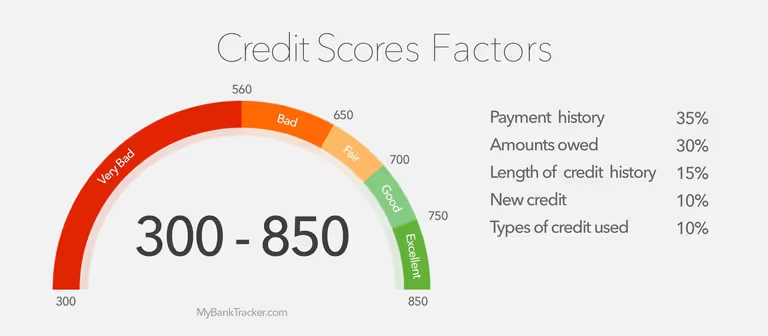Increasing your credit score is the only way of getting better loan terms, lower interest rates, and greater financial freedom. In 2024, a high credit score can save you extra money for the ways you want to spend it, but it needs systemized and efficient actions. In this guide, we’ll walk you through How to Improve Your Credit Score Quickly.
1. Check Your Credit Report for Errors
Your credit report is the first step. A flaw in your report could be the main cause for the lowering of your score. Get a free credit report from all three major credit bureaus—Equifax, Experian, and TransUnion. Carefully look at every entry, checking for wrong information such as old data or the accounts which do not belong to you. The process of disputing them and having them corrected will immediately raise your credit score.

2. Pay Your Bills on Time
Your payment history is the most important part of your credit score, as we already know. A single missed payment can be the reason why your score goes very low. Use automatic payments to make sure that your bills are paid on time. You can also remind yourself through apps. Just like your credit cards, be sure to pay your utility bills on time too. On-time payments tend to be very quick, but have a positive impact on your score.
3. Lower Your Credit Utilization Ratio
The percentage of credit which we have used out of the total limit is called credit utilization and it constitutes the big part of the score. You should try to keep your utilization of the credit up to 30% or below that threshold. To illustrate, if you have a limit of $1,000 on your credit card, try not to carry a balance of more than $300. The quickest way to improve your credit utilization is to pay off your balances which will also lead to an overall increase in your credit score.
Read more about Find Your Perfect Remote Job: Top Work-from-Home Positions for 2024-2025
4. Request a Credit Limit Increase
If you’re not able to pay down your credit card balances quickly, consider asking your credit card issuer for a credit limit increase. Requesting an increase in your credit limit will help you add up to your available credit thereby lowering your utilization rate and it will be easier to increase your score.
5. Pay Off Outstanding Debts or Settled Accounts
Debts that are not repaid, like the ones in collections, are awful for your credit score. Talk to the creditors or the collection agencies to negotiate a settlement of your accounts. After the payment, make sure to request they update your status with the credit bureaus. A fresh start can be a key to a good credit score.
6. Do Not Open New Credit Accounts
Whenever you seek a new credit, a hard inquiry is inserted, which may slightly lower your score for a time being. Though you may feel the urge to open new accounts to create a bigger credit limit, things can go the other way around and damage your score as well. Choose to take care of your old accounts and keep away from new credit applications till your score is better.
7. Consider a Secured Credit Card
A secured credit card is a good choice for you if your credit score is low or you are trying to build it again. It functions like a regular credit card, but you have to deposit money upfront to secure a credit line. Utilizing a secured card with caution ensures that you are making your payments and will contribute to your credit to either build or improve your credit overtime.
Conclusion
The journey of improving your credit score is manageable and can be accomplished over a short period of time. By using /the/ 7 guidelines of credit repair you are growing your score: pulling your credit report, doing it — on &md; time, dropping the debt down, and living a healthy credit life. It will make it easier for you to qualify for loans and credit accounts and even save you in the long run. Want to learn more? Check out our guide on credit repair
or contact us for personalized advice.










